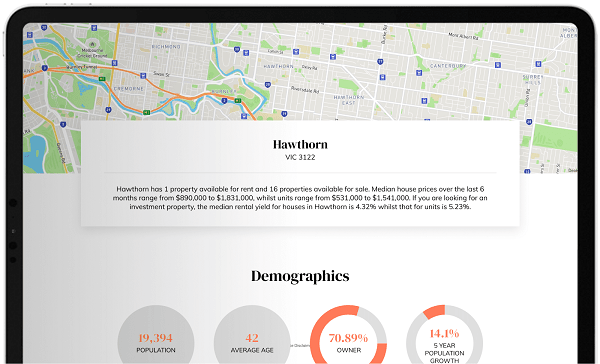Sell My Investment Property
Investment Property Sales Considerations
Investment properties are generally sold in one of two ways: as a voluntary sale or as a forced sale.
A voluntary sale
If you’re considering selling your investment property, it is worth calculating the cost of keeping it. Layout all monthly and quarterly outgoings – with interest payments, rates, body corporate, and agent’s fees being the most obvious. Add the little extras that always seem to pop up, such as the annual fees for insurance and smoke alarms. With an older property, make an allowance for ongoing maintenance costs.

Then calculate the gross return, which is the total of rent collected, and is the figure often quoted in marketing and investment literature. But go further and calculate the net return – that is, the gross rent minus the costs. This is the figure that helps with your “sell or keep” decision.
This will give you either a cash surplus or a cash deficit, and that tells you whether your property is positively or negatively geared. The clue is in the names: a positively geared property makes a profit; a negatively geared property makes a loss.
At the time of writing, you can offset the losses on a negatively geared property against other income to reduce your tax liability. But bear in mind investment legend Noel Whittaker’s golden rule about negative gearing: “Always judge an investment on its merits – any tax benefits should be regarded as the cream on the cake.” That’s a wise policy, considering tax benefits can change on a government whim.
If the cost of keeping the property outweighs the benefits, then the case to sell has been made.
A forced sale
There are situations when an investor is forced to sell.
The reality of residential property investment is a tale of everyday people having a go. Most property investors are normal people with average salaries. Sometimes things go wrong: employment or business opportunities change, tenants get in arrears, and properties always need maintenance.
If you are forced to sell, there is one primary consideration that has the greatest effect on the outcome: should the sale occur with the tenant in place, or should the tenant be moved out?
If you’re forced to sell and time is critical, there may be no choice but to sell with a tenant in place. In this case, you must address some potential dangers.
With tight finances and a sale on the horizon, the first step is to minimise repayments, to give yourself breathing space. Most banks will negotiate with an owner in financial distress when it comes to suspending or reducing repayments. But even though banks might be accommodating with payments, realise that interest will continue to accrue, and your debt will continue to grow.
Next, check the lease. You can terminate a periodic lease at any time with the correct notice. But with a fixed-term lease, the tenant is entitled to stay until the end date, regardless of ownership or financial circumstances. If a sale is looming and a lease expires, instruct the agent to keep the tenancy on a periodic lease. Don’t be tempted with a further fixed term, which will keep the tenant in place and rent coming in but makes the property harder to sell.
If there is a long-term lease in place, you can either see out the tenancy or sell with the tenant in place. With a tenant in place, any buyer for the property must be willing to inherit the tenancy. That means you’re narrowing the buyer pool to investors only, and thus reducing the selling price.
Alternatively, with effective negotiation, tenants on fixed-term leases may agree to move out, compensation such as moving costs or a cash incentive will often help.
A rogue tenant with sub-standard presentation who creates issues with buyer inspections makes a property very difficult to sell. Buyers often don’t give such properties the same consideration they give a vacant or well-cared-for property.
Depending on circumstances, you can give notice and wait for the lease to expire, or (if possible) have the rogue tenants removed for breach of tenancy. After the tenant vacates, restore the property through hard work and repairs. If a rogue tenant isn’t – or can’t be – moved, the price will reflect the tenant and the condition of the property. That is, it will be significantly lower than expected.
On the flip side, a good tenant caring for the property assists when selling, so consider offering compensation such as a reduced rent as a goodwill gesture – and your tenant will often repay that goodwill by cooperating with you on the sale. They make inspections easy and keep the property in shape.


